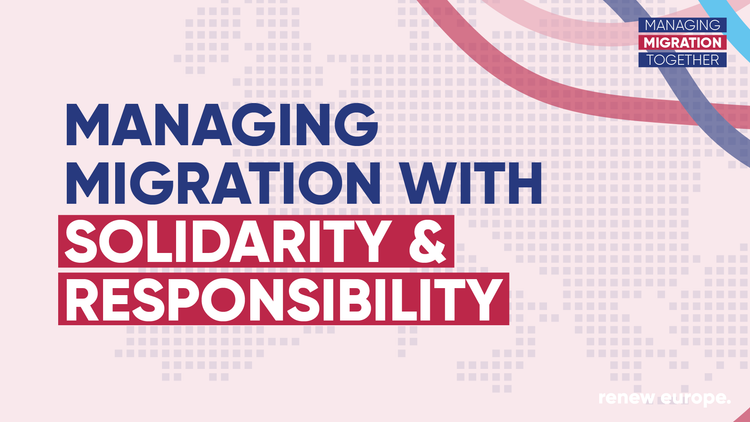Migration and Asylum Pact: Parliament breakthrough must be quickly followed up by the Council

The Renew Europe group welcome today's adoption of the Asylum and Migration Pact's key regulations, paving the way for a new system built on solidarity and responsibility-sharing. Our group played a decisive role in securing a cross-party majority.
"This is a breakthrough moment to get the asylum and migration reform in place, bringing long-term sustainable solutions that can stand the test of time," says Fabienne Keller (L'Europe Ensemble, France), the European Parliament's rapporteur of the Asylum Procedures regulation and shadow rapporteur on the Asylum and Migration Management regulation. The deals enable more efficient border procedures, reinforced cooperation partnerships with third countries of origin and transit, and the prioritising of the child's best interest.
Fabienne Keller continues: "This new Asylum and Migration Management regulation will facilitate coordination between the Member States and set the rules for a strong EU solidarity mechanism to support Member States under migratory pressure. The Asylum Procedures regulation I worked on will also enable border procedure for manifestly non-eligible asylum seekers crossing the EU's external borders."
Our political group played a central role in the negotiation of the four pieces of legislation, the two others being the Screening regulation and the Crisis regulation. In the Screening regulation, Renew Europe managed to include a 5-day time limit on processing applications of migrants, including a new element of vulnerability checks and special guarantees for unaccompanied minors, while also decreasing bureaucracy by, for instance, letting Member States choose the location of the screening.
Jan-Christoph Oetjen (FDP, Germany), shadow rapporteur on the regulation on Screening of third-country nationals at the external borders, emphasised:
"We are now one step closer to building a truly European asylum and migration system based on our shared EU values of solidarity and responsibility. The new Screening regulation is an important part of it by helping to clarify and streamline the rules when dealing with third-country nationals arriving at the EU's external borders, especially those not authorised to enter or stay. Here, the establishment of independent fundamental rights monitoring mechanisms is key to avoid human rights violations, as well as the mandatory health checks to make sure vulnerable people get the help they need."
Malik Azmani (VVD, Netherlands), shadow rapporteur on the Crisis and Force Majeure regulation, said:
"With this new instrument in times of migration crises, bringing concrete tools for frontline states to address such challenging situations, we can finally put an end to ad hoc solutions in cases of exceptional mass influx of third-country nationals. Now we rapidly must get into negotiations with the Council to deliver and implement the EU asylum and migration reform by 2024."
In the Crisis regulation, we secured a firm obligation for Member States to increase their preparedness levels in order to avoid migration crises. During a crisis, Member States will have more flexibility to address the increased number of arrivals in order to allow border procedures to continue functioning regularly. An important element is ultimately a fast and effective solidarity mechanism, including accelerated procedures for applicants fleeing conflict and their relocation between Member States.